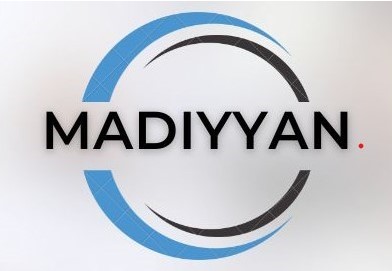
Personal development refers to the ongoing process of self-improvement, self-awareness, and skill enhancement that allows individuals to reach their full potential. It involves taking deliberate steps to develop and enhance various aspects of one’s life, including emotional, intellectual, physical, and social well-being.
The journey of personal development begins with self-reflection and understanding one’s strengths, weaknesses, values, and aspirations. It involves setting meaningful goals and creating a plan to achieve them. Personal development encompasses a wide range of activities and practices that help individuals grow, evolve, and become the best version of themselves.
Some key areas of personal development include:
Self-Awareness: Developing self-awareness involves understanding one’s thoughts, emotions, and behaviours. It involves recognizing strengths, weaknesses, and patterns of behaviour. Self-awareness allows individuals to make conscious choices, manage their emotions, and develop healthier relationships.
Goal Setting: Setting clear and meaningful goals provides direction and purpose in life. Effective goal setting involves setting SMART (Specific, Measurable, Achievable, Relevant, Time-bound) goals that are aligned with personal values and aspirations. Goals provide motivation and a sense of accomplishment when achieved.
Continuous Learning: Personal development involves a commitment to lifelong learning and acquiring new knowledge and skills. This can be achieved through reading books, attending seminars, taking courses, or pursuing formal education. Continuous learning broadens perspectives, enhances problem-solving abilities, and opens up new opportunities.

Emotional Intelligence: Emotional intelligence refers to recognizing, understanding, and managing one’s emotions and effectively navigating interpersonal relationships. Developing emotional intelligence involves self-awareness, empathy, effective communication, and conflict-resolution skills.

Time Management:
Efficiently managing time is crucial for personal and professional success. It involves prioritizing tasks, setting boundaries, avoiding procrastination, and effectively allocating time for different activities. Good time management leads to increased productivity, reduced stress, and a better work-life balance.
Health and Wellness: Personal development includes taking care of one’s physical and mental well-being. This includes regular exercise, healthy eating, adequate sleep, stress management, and self-care practices. Prioritizing health and wellness enhances the overall quality of life and supports personal growth.

Positive Mindset: Cultivating a positive mindset involves developing optimism, resilience, and gratitude. It involves reframing negative thoughts, practising self-compassion, and focusing on personal strengths and achievements. A positive mindset helps individuals overcome challenges, bounce back from setbacks, and maintain a hopeful outlook.
Personal Relationships: Building and nurturing meaningful relationships is essential for personal development. This includes developing effective communication skills, practising active listening, showing empathy, and fostering healthy boundaries. Positive relationships provide support, encouragement, and a sense of belonging.
Self-Confidence: Building self-confidence is an integral part of personal development. It involves recognizing and embracing one’s strengths and abilities while working on areas that need improvement. Self-confidence empowers individuals to take risks, pursue their dreams, and overcome self-doubt. By setting achievable goals and celebrating accomplishments, individuals can boost their self-esteem and develop a positive self-image.
Effective Communication: Communication skills play a crucial role in personal and professional relationships. Developing effective communication skills involves listening actively, expressing thoughts and ideas clearly, and adapting communication styles to different contexts and audiences. Effective communication fosters understanding, reduces conflicts, and strengthens interpersonal connections.
Financial Management: Personal development includes taking charge of one’s financial well-being. It involves developing financial literacy, budgeting skills, and saving habits. Understanding personal finances, managing debts, and planning for the future contributes to financial stability and reduces stress related to money matters.
Leadership Skills: Personal development can involve honing leadership skills, regardless of one’s position or career path. Leadership skills include effective decision-making, problem-solving, delegation, and motivating others. Developing leadership abilities allows individuals to take charge, inspire others, and make a positive impact in their personal and professional lives.
Resilience: Resilience is the ability to bounce back from adversity and adapt to challenges. Building resilience involves developing coping mechanisms, embracing change, and maintaining a positive outlook in the face of setbacks. Resilience enables individuals to navigate through difficult times, learn from failures, and persevere in the pursuit of their goals.
Creativity and Innovation: Personal development encourages individuals to tap into their creativity and embrace innovative thinking. Developing creative skills and fostering an innovative mindset allows individuals to approach problems from different angles, explore new possibilities, and find unique solutions. Creativity and innovation fuel personal growth, and professional success, and contribute to a more fulfilling life.
Work-Life Balance: Achieving a healthy work-life balance is essential for overall well-being. Personal development involves setting boundaries, managing time effectively, and prioritizing activities that bring joy and fulfilment outside of work. Striking a balance between career, relationships, personal interests, and self-care promotes mental and emotional well-being.
Mindfulness and Meditation: Practicing mindfulness and meditation is a valuable tool for personal development. Mindfulness involves being fully present at the moment, cultivating awareness, and reducing stress. Regular meditation practice enhances focus, reduces anxiety, and promotes overall mental well-being.
Personal Reflection and Journaling: Engaging in personal reflection and journaling allows individuals to gain insight into their thoughts, emotions, and experiences. Reflecting on past actions, setting intentions, and documenting personal growth fosters self-awareness and provides a valuable record of one’s journey.
Networking and Relationship Building: Personal development involves building meaningful connections and expanding one’s network. Networking allows individuals to exchange ideas, gain support, and create opportunities for personal and professional growth. Building strong relationships and nurturing connections fosters a sense of community and opens doors to new possibilities.
Continuous Evaluation and Growth: Personal development is an ongoing process that requires regular evaluation and adjustment. Taking time to reflect on progress, reassess goals, and make necessary changes ensures that personal growth continues. Embracing a growth
if you like this blog then make sure to check out our blog on mental health
